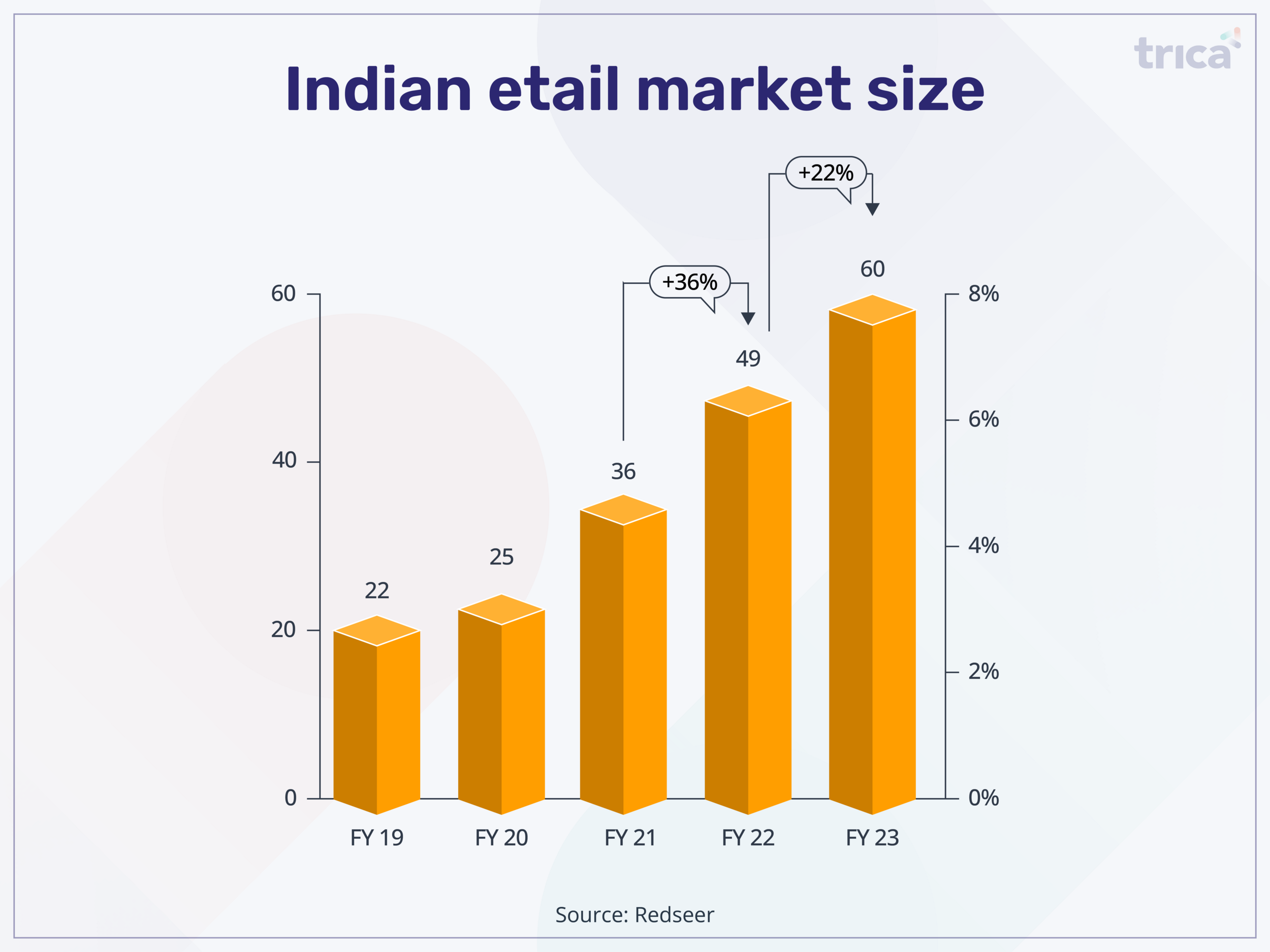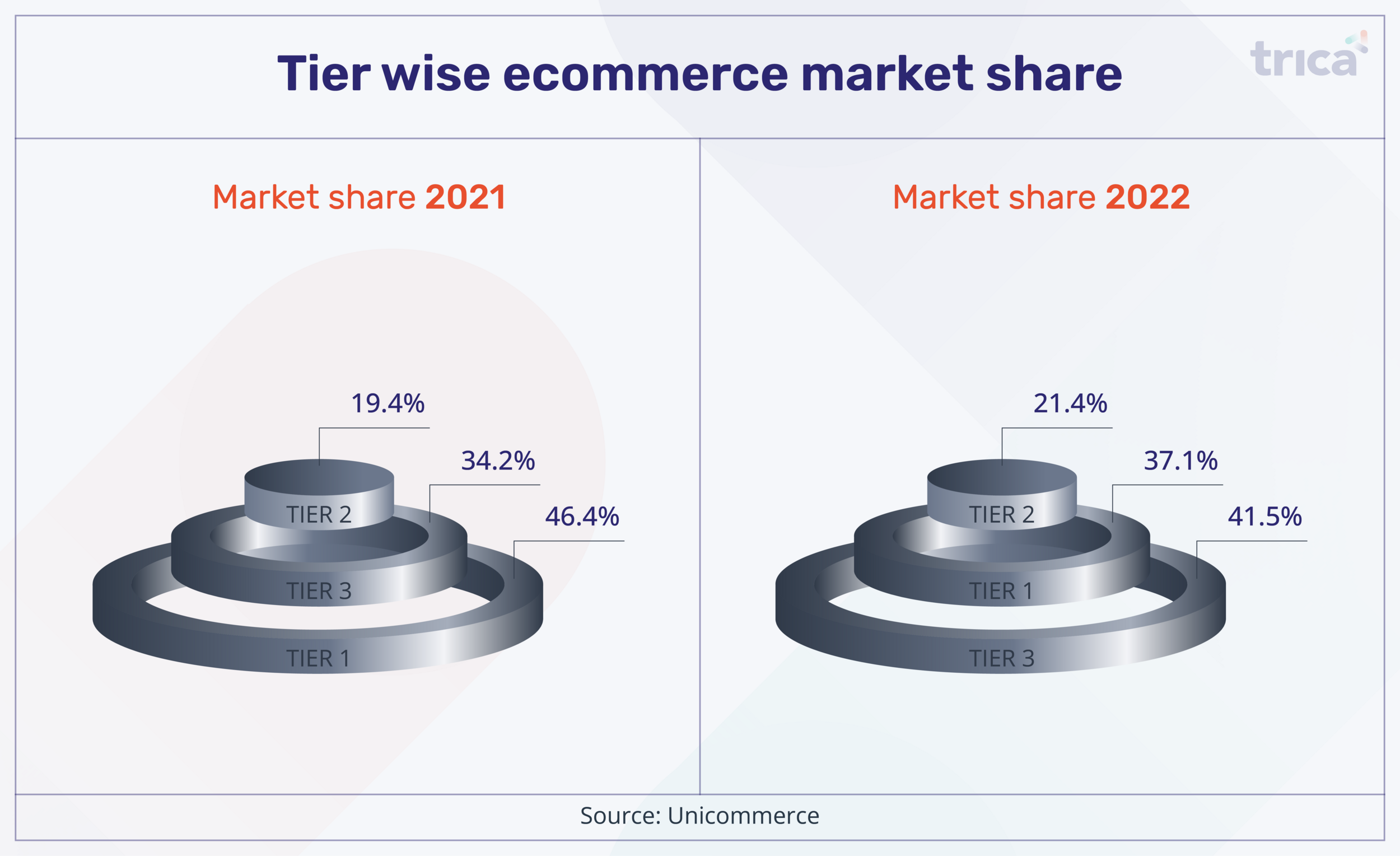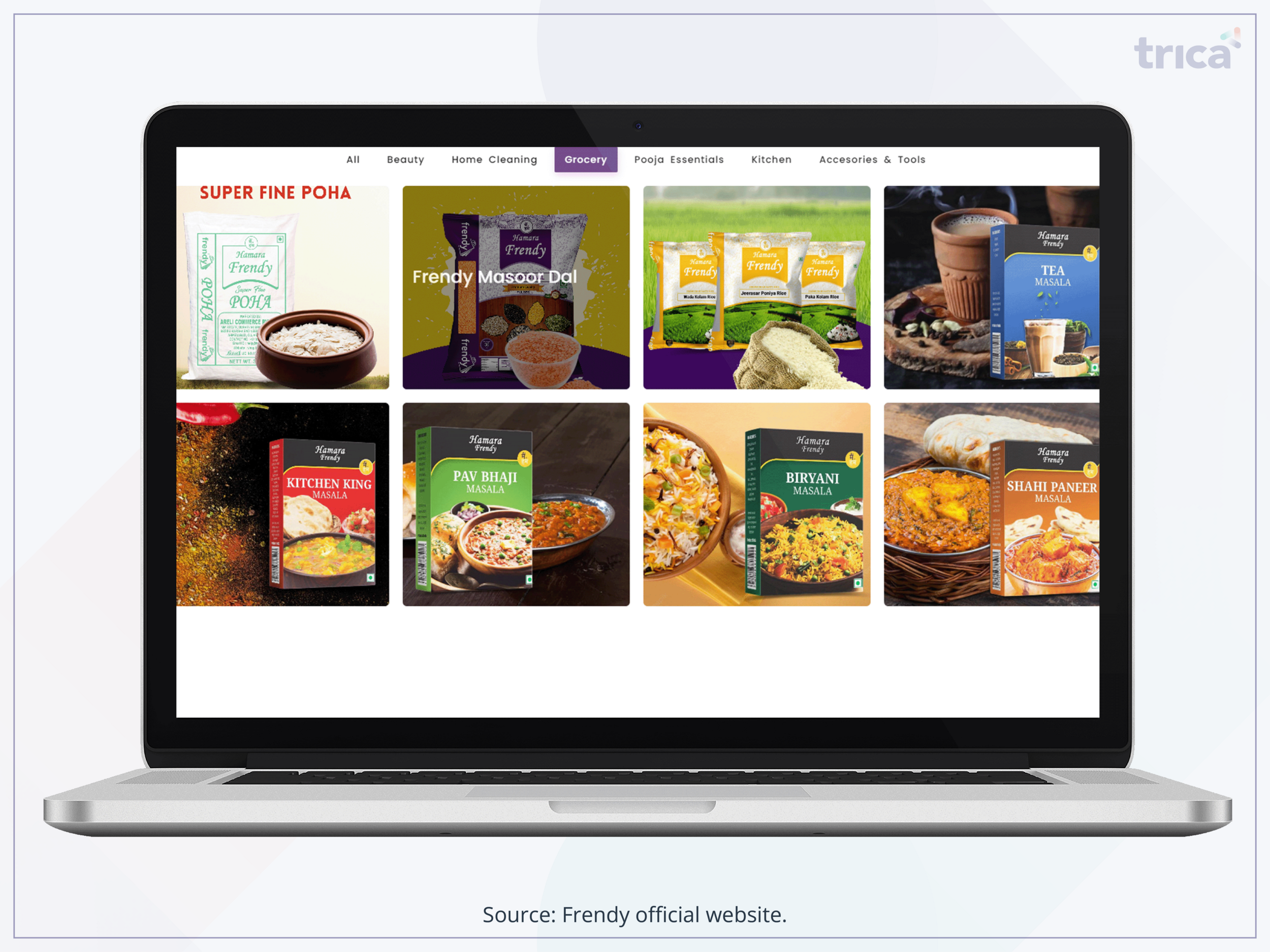
What’s in your shopping cart today?
If you are someone who enjoys their weekend staying at home, ordering delicious munchies and watching movies online, then e-commerce services might just be one of your favourites.
Digital commerce or e-commerce has made its way into our daily lives. While the segment has been around for a long time, it was a ‘good-to-have’ option. However, COVID-19 led restrictions made it an essential for all of us. From getting groceries, medicines, apparel, food, electronics, to booking tickets, everything got enabled through e-commerce.
E-commerce startups reportedly raised a total of $533 million in Q1 2023 and the median ticket size was pegged at $2 million, according to Inc42 data.
In India, the online e-tailing GMV reached $60 billion in FY23, according to RedSeer data. While there are several players operating the growing ecommerce market in India, Flipkart has been holding its market share even amid the growing competition. According to RedSeer, Flipkart Group holds 48% of the overall e-tailing market.

The data also revealed that in the last three years, new users who want to try ecommerce have also increased in India.
In fact, consumers beyond Tier 1 cities are expected to lead the change in the Indian e-commerce landscape. According to India E-commerce Trends Report 2022 by Unicommerce, Tier 2 and Tier 3 cities together contributed to nearly 63% of the market share in 2022.

Online shoppers from Tier 2 to 4 cities are also reportedly spending more than consumers from Tier 1 city. A recently published survey report by Indian Institute of Management Ahmedabad (IIMA) found that buyers from small towns spent up to 77% more than those from Tier 1 cities in their last online order.
Ahmedabad-based Frendy is focusing on the growing Bharat market. With a vision to build a supermarket in every neighbourhood, Frendy is bringing digital commerce to local areas across the country through phygital (physical + digital) stores. It operates on WEcommerce model where it works with homepreneurs especially women from Tier 2 to Tier 6 towns.
Frendy partners with the homepreneurs enabling them to build digital businesses through in-home micro-convenience stores. Customers can order through the digital supermart using a mobile application and get products delivered within 48-72 hours. Simultaneously, customers can also visit the home store for purchase or pick up their online orders.
With this model it is not only making digital commerce accessible across the country but also help build the next generation of women entrepreneurs from India.

As the consumer demand shifts, the e-commerce segment continues to evolve to meet the user needs. With a phygital model in place, consumers do not need to choose between just online or offline. One can enjoy both the ease of online ordering and confirming the product quality offline.
For this reason perhaps, the omnichannel or hybrid mode in digital commerce is gaining much more user interest. The Indian phygital market is expected to offer $1 trillion market opportunity in 2030, according to State Of Indian E-commerce Report Q1 2023 by Inc42. The data also reveals that 88% of the Indian consumers want to purchase items as quickly as possible thereby pushing e-commerce players to consider a hybrid model.
What is on your shopping list today?
(Featured image: Unsplash)








